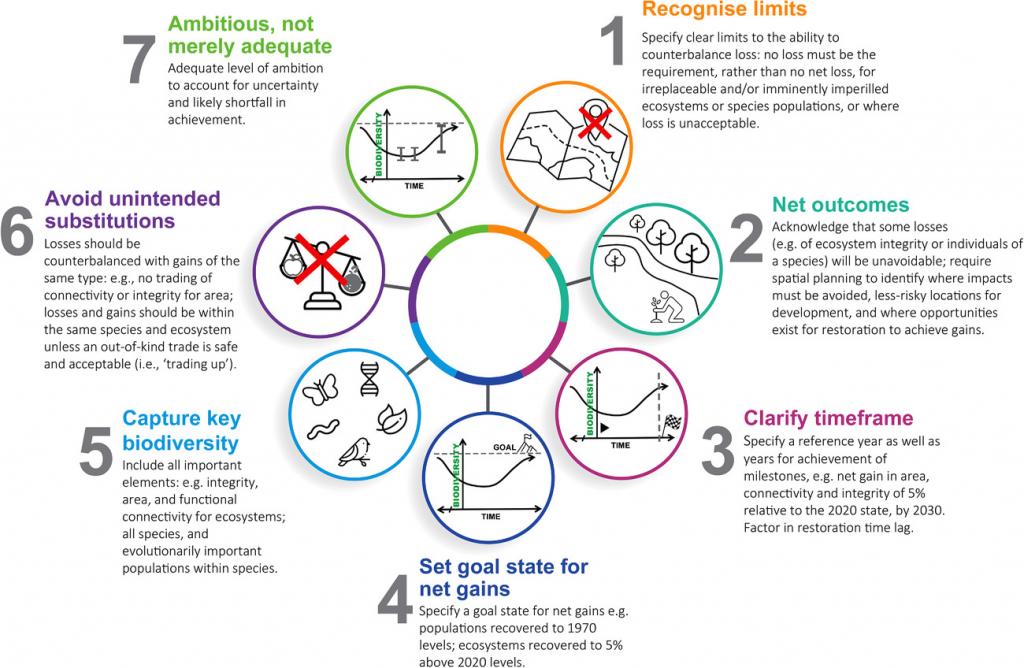
Seven principles to set goals that achieve positive outcomes for biodiversity
The Convention on Biological Diversity (CBD) is an international treaty put in place in 1993 to promulgate conservation and sustainable use of biodiversity, while ensuring the fair and equitable sharing of the benefits arising out of the utilization of genetic resources. The CBD and its partners are now in the process of determining a new Global Biodiversity Framework (GBF) for action on biodiversity up to 2050, with specific milestones to be achieved in 2030, building on previous progress (and challenges) in the Aichi Targets 2010-2020.
The Development Corridors Partnership is pleased to have been a part of a collaborative new open-access paper, “Setting robust biodiversity goals“. The paper explains how the concept of “no net loss” can be embedded in the new GBF, and also lays out seven general principles to minimise perverse, undesirable outcomes from poorly defined goals and targets.
These principles would also apply to development corridor stakeholders, whose aim is to deliver positive outcomes for people without compromising ecological integrity of natural systems.

Seven principles to underpin outcome-oriented conservation goals at all levels, from global to local
Read full paper here.
Featured image by Rob Marchant \ Development Corridors Partnership
